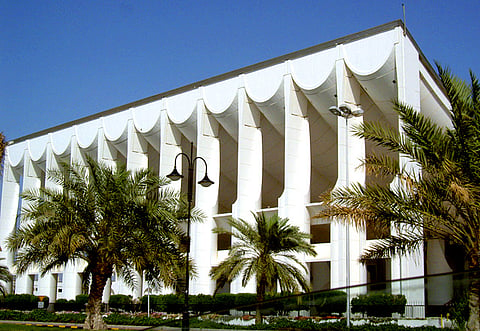Kuwaiti government begins to set “2020 election” conditions amid COVID-19
Ministry of Interior, Health and Municipality meet to discuss 2020 elections

Also In This Package
Kuwait City: Various governmental agencies in Kuwait, headed by the Ministry of Interior and Ministry of Health, started discussing the preparations that are needed to be put in place prior to the ‘2020 National Assembly elections’, Al Anba newspaper reported on Sunday.
So far two election dates have been proposed, either November 28 or December 5 of this year. The government is yet to decide on an exact date.
The National Assembly’s four-year term will end on September 10 and therefore elections for the new parliament are expected to be held by end of year.
Threat of COVID-19
The Ministry of Health has been asked to draft a report that would be presented at the end of September, detailing the health situation in the country, in order to determine how the elections will be held.
In addition, the Ministry of Health pointed out that health precautions should be put in place like increasing the number of polling stations to ensure social distancing.
The precautions that will be suggested by the Ministry of Health will be passed on to the respective governmental agency. For example, in regards to holding campaign seminars the Municipality would be in charge of enforcing all the necessary precautions from social distancing to refraining food and beverages in the hall.
Given the current COVID-19 crisis, many people are wary that the pandemic will have an effect on the upcoming elections. One of the concerns is in regard to voter turnout, as it is unclear what the situation will look like in the next few months.
2016 election
The last National assembly election, back in 2016, saw a 70 per cent turn out, which resulted in the opposition winning nearly half of the seats.
Although Kuwait do not have a political party system, it is estimated that out of the 50 seats in parliament, 20 were won by the opposition, mainly consisting of the Muslim Brotherhood, liberals and pan-Arabists.
According to the Election Guide, during the 2016 elections, there were 483,000 registered voters. It is required as per the Kuwaiti constitution that in order to vote one must be over 21 years-old and a registered voter.
The parliament’s 50 members are elected by their constituents that are divided into five electoral districts, where each district elects 10 MPs.
The National Assembly is a unicameral legislature and is the main legislative power in Kuwait.
Sign up for the Daily Briefing
Get the latest news and updates straight to your inbox









